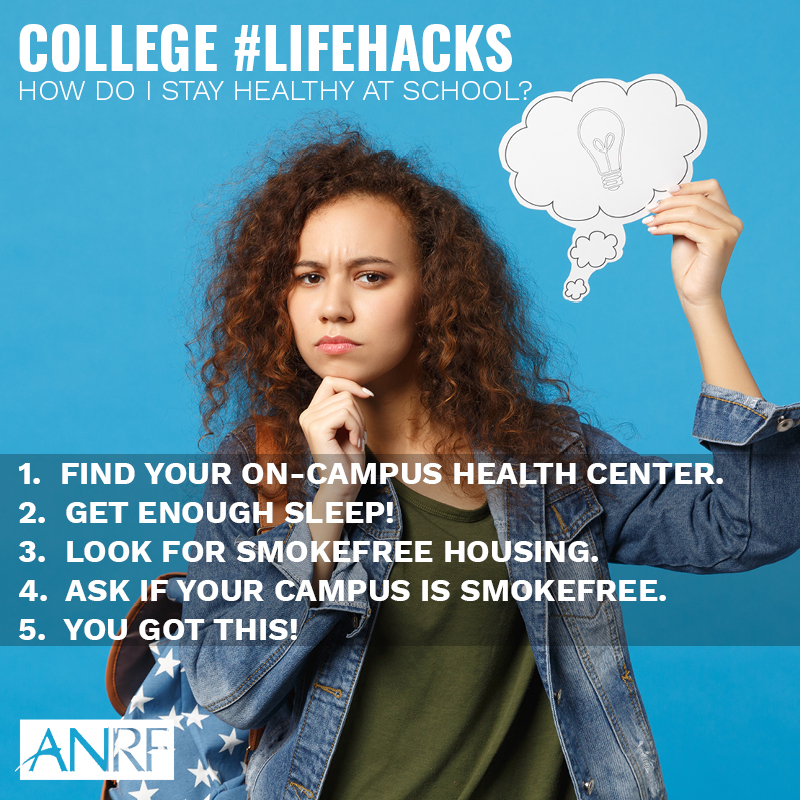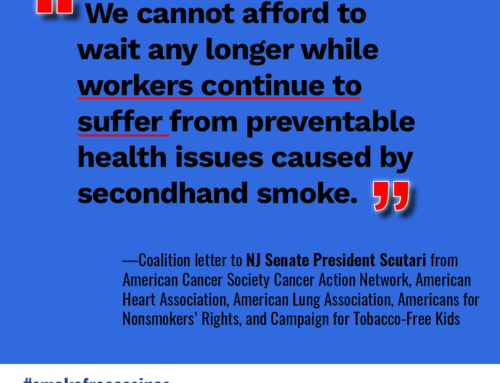Off to college this fall? Here are 5 top things to do for a healthy year at college:
- Find the health center or clinic on your campus so you know where to go if you get sick and to help you stay healthy.
- Get the sleep you need! “Sleep services all aspects of our body in one way or another: molecular, energy balance, as well as intellectual function, alertness and mood,” says Dr. Merrill Mitler, a sleep expert and neuroscientist at the National Institutes of Health.
- Look for smokefree housing. Does your campus require dorms to be smokefree and vape-free? If you’re living off-campus, be sure to ask the landlord before you move in if your apartment has a smokefree and vape-free policy. Also look for housing that prohibits smoking in common outdoor areas to avoid having secondhand smoke drift inside from shared patios.
Did you know thirdhand smoke is a thing? Thirdhand smoke is the residual contamination that smoke from cigarettes, cigars, and other tobacco products leaves behind. This residue builds up on surfaces and furnishings and lingers long after smoking stops. Thirdhand smoke may seem like only an offensive stale smell, but it indicates the presence of tobacco toxins that harms the health of residents. Avoid it if at all possible!
- Check to see if your campus is smokefree so you can stay healthy and breathe easy. In 2017, just 17% of accredited, degree-granting U.S. colleges and universities had a 100% smokefree or tobacco-free policy according to a new study. If your campus is not smokefree, tobacco-free, and vape-free you can get involved to encourage your campus to take action.
What about vaping? In the past few years, vaping—or the use of e-cigarettes—has increased dramatically, especially among high school and college-age people. Juul and other popular vaping devices are targeted at young people, and 63% of Juul users do not know that this product always contains nicotine. Also, did you know that the “vapor” released by vaping products is far from harmless? The “vapor” is actually a toxic chemical aerosol that’s made up of nicotine; ultrafine particles; flavorings such as diacetyl, a chemical linked to serious lung disease; volatile organic compounds such as benzene, which is found in car exhaust; and heavy metals, such as nickel, tin, and lead. This makes it important to be at a college campus that is vape-free!
- Tell your family not to worry, you got this! Information for parents is here. If you get to school and find that smokefree policies are not being enforced, here are some tips. Maybe you’d like to change things on your campus? You can be an advocate for smokefree air! Here’s a path to making your campus smokefree.






